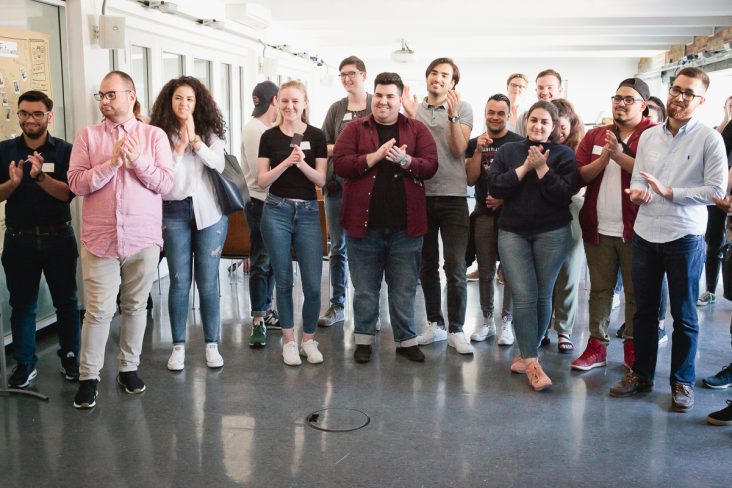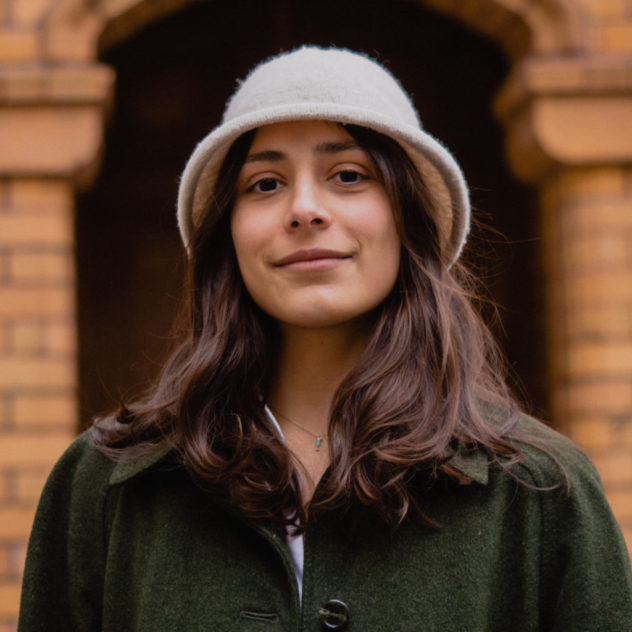
Stereotypes, values, and narratives
Stereotypes, values, and narratives
21. Februar 2023
What are stereotypes, how do they work and how can we counter them? Narrative Change Academy fellow Kübra Sariyar writes about the aim of the Academy, what she took away from the strategic work phase so far and how the process will continue once the selected participants are joining.
Stereotypes simplify the complex, they are expressions of power relations. We find them in all areas of modern life.
In its origin, the word “stereotypes” refers to a technique of mass printing in the 18th century, in which printed pages composed of movable letters were multiplied. When I think about the Narra-tive Change Approach as a member of the strategy working group, I recognise methodological simi-larities. Twelve participants will create a digital campaign to share their vision of a post-migrant society in Germany by engaging with the so-called moveable middle at the academy. Under the motto “We shape the post-migrant Europe of tomorrow”, a new approach to address anti-Muslim stereotypes in Europe is to be created and multiplied. In Rey Chow’s words, “it is not simply a mat-ter of rejecting stereotypes and pretending that we can get rid of them, but also of recognising in acts of stereotyping […] a fundamental process of meaning or representation, with real theoretical and political consequences.”
A new approach to address anti-Muslim stereotypes in Europe is to be created and multiplied
The strategy working group started with Jasemin Seven, David Bakum, and me four months ago and has come a long way since then. After four months, I can constitute that we generally worked in a nurturing way by caring for each other and providing enough time to process all the new impressions. During the first two months, we attended four input sessions with the experts Marlene Gärtner, William Barylo, Samira Brahimi, and Alaya Forte. Each expert shared their knowledge on the power of narratives, narratives of Muslim life in France and the UK, and new narratives of Eu-ropean Muslim women’s identities. I particularly liked the different approaches of negotiating these topics. As a preparation for the first workshop with Gesine Schmidt-Schmiedbauer, Philip Doyle, and Thomas Coombes from hope-based comms, who were navigating us through the strate-gic phase, David and I looked for ascriptions of Muslims by others and by themselves. One self-ascription was: a Muslim who is bored of talking about Muslims in Western media. During the workshop, we spoke about our personal and group-based values and what to consider in general for a campaign. One way of thinking about a campaign is as a mosaic of different stories communi-cated through various media. By this point, it became apparent to me how relevant the topic of media competency is. Not only in producing media but also in consuming media.
It became apparent to me how relevant the topic of media competency is
We should learn to read media in a more detailed way by starting to question why we see what we see.
In November 2022 we also attended a focus group observation which aimed to generate assump-tions about the participant’s willingness to engage socially with people who have immigrated to Germany. As a silent observer, it wasn’t always easy to just listen to the xenophobic comments of some participants. However, in this space without counter-attitude, the underlying motives be-came more and more apparent. The xenophobic utterances seemed like media-reproduced lan-guage rather than a worldview. In the new year, Jérémie Gagné and Falco Hüsson from More in Common presented to us their study Cohesion in the Immigration Society and the six segments of German society. For me it was interesting to think about family members in these categories and that this categorisation is only an attempt to capture German society, of course with gaps that must also be considered. We looked at the values of these six segments, as well as those of the Young Islam Conference network. Based on that and together with hope-based comms, we decided for one segment to be the target group of the digital campaign. Moreover, we thought about our post-migrant vision of the future and planned the upcoming workshops for the twelve participants of the academy.
The Narrative Change Academy ends with its initial strategic phase now and continues with the campaign phase. I am very curious to see if the groundwork we have created will lead to an exciting campaign and look forward to working with the twelve participants attending from Germany, France, and the UK.
#empowerment #narrative change

- von Kübra Sariyar
- am 21. Februar 2023

